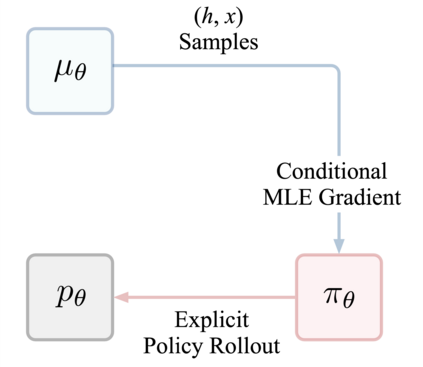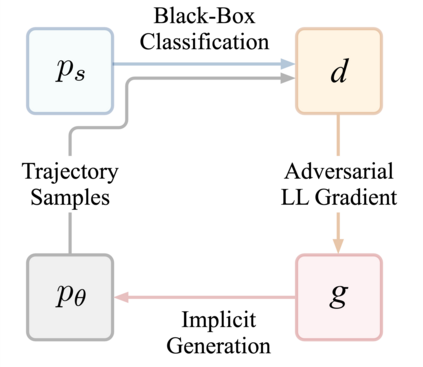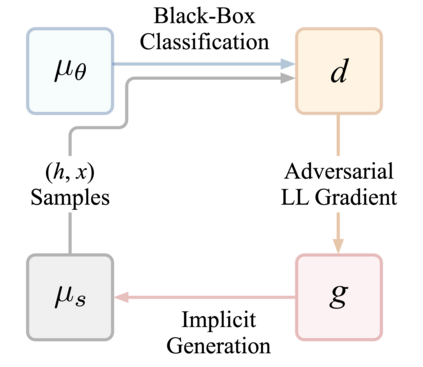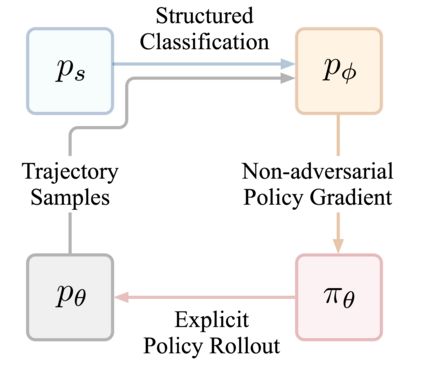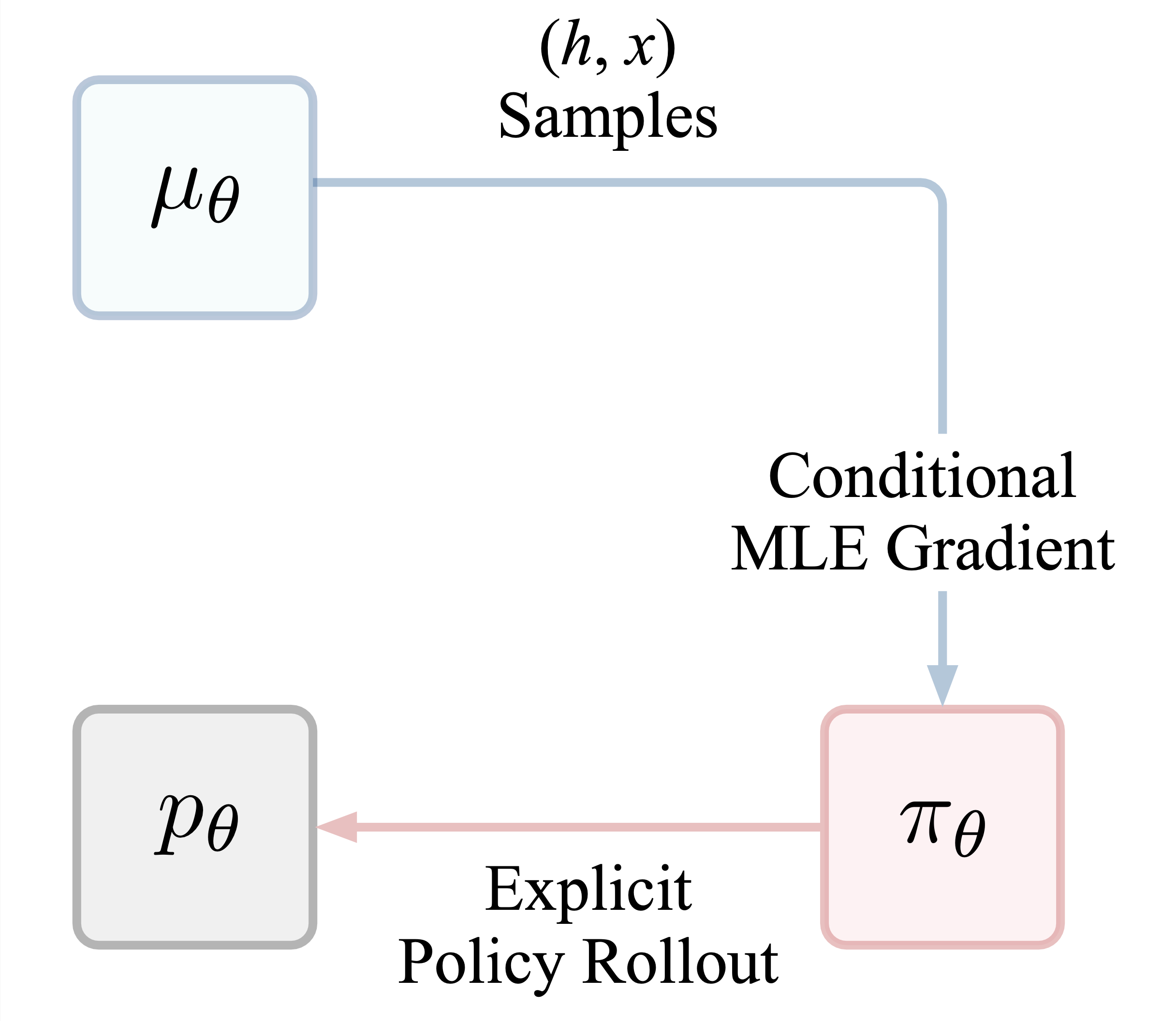Consider learning a generative model for time-series data. The sequential setting poses a unique challenge: Not only should the generator capture the conditional dynamics of (stepwise) transitions, but its open-loop rollouts should also preserve the joint distribution of (multi-step) trajectories. On one hand, autoregressive models trained by MLE allow learning and computing explicit transition distributions, but suffer from compounding error during rollouts. On the other hand, adversarial models based on GAN training alleviate such exposure bias, but transitions are implicit and hard to assess. In this work, we study a generative framework that seeks to combine the strengths of both: Motivated by a moment-matching objective to mitigate compounding error, we optimize a local (but forward-looking) transition policy, where the reinforcement signal is provided by a global (but stepwise-decomposable) energy model trained by contrastive estimation. At training, the two components are learned cooperatively, avoiding the instabilities typical of adversarial objectives. At inference, the learned policy serves as the generator for iterative sampling, and the learned energy serves as a trajectory-level measure for evaluating sample quality. By expressly training a policy to imitate sequential behavior of time-series features in a dataset, this approach embodies "generation by imitation". Theoretically, we illustrate the correctness of this formulation and the consistency of the algorithm. Empirically, we evaluate its ability to generate predictively useful samples from real-world datasets, verifying that it performs at the standard of existing benchmarks.
翻译:暂无翻译

